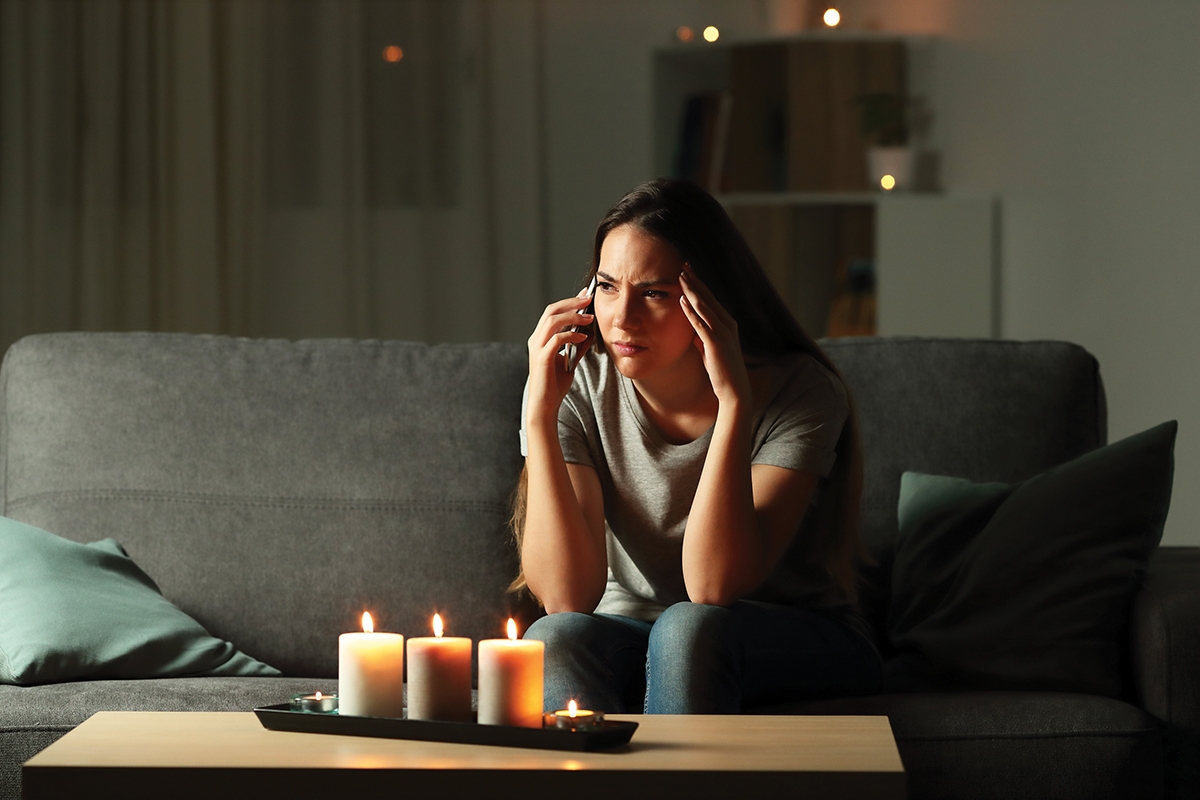Stay In Touch
How To Communicate With Loved Ones During A Disaster

When a disaster strikes, it can often be difficult to commu-nicate with loved ones. Hurricanes, tornadoes, and other emergencies may cause power outages or overwhelm cellular services, sometimes making normal lines of communication nearly impossible. But by planning ahead and following these tips, you can help maintain connection with friends and family in an emergency.
Before a Disaster Strikes
The Federal Communications Commission (FCC) offers the following suggestions on how to prepare for communication before an emergency occurs.
Have Car Chargers Handy. Get in the habit of keeping your cellphone and laptop fully charged, and have a car charger available in the event of a power outage. Consider buying additional batteries and solar or hand-powered chargers for your devices.
Make an Emergency Contact List. Having a paper copy of essential contacts on hand will allow you to reference them, even if your smartphone dies. Start by collecting phone numbers and email addresses for everyone in your household. The FCC also recommends you gather phone numbers for emergency services, utilities, medical offices, veterinarians, and your insurance com-panies. Once your contact lists are completed, make sure every member of your family has one. In addition, identify a few contacts as “In Case of Emergency,” or ICE, in your phone’s contact list. This will help emergency responders determine whom to contact should they need to assist you.
Create an Emergency Plan. Because you and your loved ones may be separated when disaster strikes, be sure to develop a plan specific to your family. For example, choose accommodations that are accessible for any family members with disabilities, as well as your pets, if you have them. Ready.gov recommends choosing an emergency meeting place that’s in your neighborhood, and one that’s out of your neighborhood. Your plan should also detail how you will contact each other. For instance, designate an out-of-town contact for everyone to notify that they’re safe, or set an “on air” time where you’ll each power up your phones and call or text with your status. It’s also a good idea to work with your children’s school or daycare to understand their emergency communication procedures.
During and After a Disaster
There are also steps you can take to improve the likelihood of communicating successfully with loved ones immediately after an emergency situation.
Text and Use Social Media. Cell service can become congested during an emergency. Instead, try text messaging or emailing, which, the FCC says, are services that are less likely to experience network congestion. Also, consider posting your status on social media or registering on the American Red Cross’ “Safe and Well” website (https://safeandwell.communityos.org/cms/), so loved ones who may be searching for you will know that you’re alright.
Conserve Your Phone’s Battery Life. You can extend the life of your cellphone battery charge by reducing the brightness of your screen, turning off Wi-Fi, and closing apps that aren’t critical. Additionally, if you’re able to make a call, consider updating your voicemail message so that, even if inbound calls go to voicemail, you’re able to offer loved ones an update on your well-being.
By taking these steps to prepare, you can help ensure you and your family stay informed throughout an emergency should disaster strike this summer, or anytime during the year.
Thomas Walters
Allstate agent and owner of Walters Insurance Agency.

